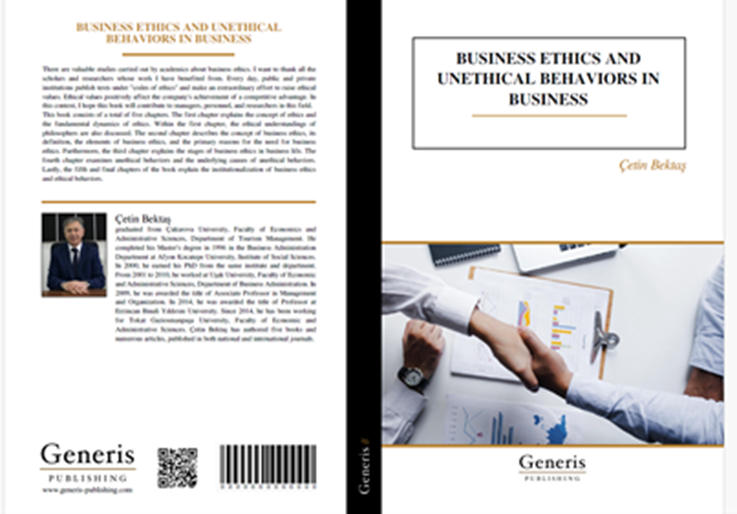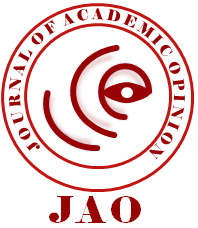Kentsel Dönüşüm Uygulamalarının Kentin Sosyo-Ekonomik Yapısı Üzerindeki Etkileri: Tokat 600 Evler Mahallesi Örneği
DOI:
https://doi.org/10.5281/zenodo.7497549Anahtar Kelimeler:
Kentsel Dönüşüm, Mekân, Toplum, TokatÖzet
Cumhuriyet kurulduktan sonra daha çok kırsal yapısı hüviyeti gösteren ülkemizde 1950’li yıllar sonrası kentlere hızla göç akımı olmuş, başta büyük şehirler olmak üzere ülkedeki kentlerin çoğunluğu bundan etkilenmiştir. Kentlerin düzenli gelişmesinin önünde bir engel olarak yükselen çarpık kentleşme yapıları 21. yüzyılın başlarından itibaren kentsel dönüşüme konu yapılmaya başlanmıştır. Her ne kadar bu dönüşüm büyük kentlerde gecekondu bölgelerinin dönüşümü şeklinde başlasa da daha sonra büyük ve küçük kentlerdeki tüm eski konutların bu dönüşüme konu edilmeye başlandığı bir duruma doğru dönüşmüştür. Kentsel dönüşüm uygulamaları salt mimari ve teknik bir konu olarak ele almak mekânlarda ve toplumlarda yaşanan dönüşümleri görmeye engel olacaktır. Mekânda gerçekleşen değişim ve dönüşümler toplumda yaşanan değişim ve dönüşümler diyalektik bir ilişki içerisindedir. Bu çerçevede çalışma kentsel dönüşüm uygulamaları kapsamında mekânsal düzlemde gerçekleşen uygulamaların mekân ile toplum arasında yaşanan ilişkiler üzerinde meydana getirdiği değişiklikler ve dönüşümler araştırılmıştır. Çalışmanın inceleme konusunu oluşturan Tokat kentinde yer alan ve 600 Evler bölgesi olarak adlandırılan mekânlarda gerçekleştirilen kentsel dönüşüm uygulamaları öncesi ve sonrası yapı ortaya konulmuştur. Çalışmada aile üyelerinin, kişilerin ve toplumların yıllardır alıştığı ve elde ettiği davranış kalıplarının kaybolmaya başladığı gözlenmiştir. Ancak mekânlar ve tüketim alışkanlıkları değişse bile yeni gidilen mekânlarda ve yeni kurulan komşuluk-arkadaşlık ilişkilerinde geleneksel ilişkilerin izlerini hala görebilmek mümkündür.
Referanslar
Acungil, Y. (2015). Kentsel Dönüşümün Geleneksel İlişkilere Etkisi: Tokat Karşıyaka Mahallesi Örneği. Tokat Tarihi ve Kültürü Sempozyumu. 25-26 Eylül 2014. Bildiriler Cilt II. 337-362.
Acungil, Y. (2018). Kent sosyolojisinin ortaya çıkışı ve gelişimi sürecinde etkili olan düşünürler. Sosyal Bilimlerde Değişim ve Gelişim Yazıları I. Çataloluk, Cuma & Bozdoğan, Doğan (edt.), 121-183.
Aksu Kocatürk, G. (2021). Kentsel mekânın toplumsallığı üzerine bir okuma. Kent Sosyolojisi Üzerine Senfonik Okumalar içinde, Şentürk, Ünal (edt.). 297-314.
Arlı, A (2012), “Şehir Sosyolojisi: 1970 Öncesi Tartışmalar Hakkında Bir Yeniden Değerlendirme”, Köksal Alver (ed.), Kent Sosyolojisi, Ankara: Hece Yayınları.
Aslanoğlu, R. (2000). Kent, Kimlik ve Küreselleşme. Bursa: Ezgi Kitabevi.
Ataöv, A. & Osmay, S. (2007). Türkiye’de kentsel dönüşüme yöntemsel bir yaklaşım. METU JEA. 2 (24), 57-82.
Duman, B. (Tarih Yok). Kentsel yenileşme ve kentsel dönüşüm. İstanbul Üniversitesi Açık ve Uzaktan Eğitim Fakültesi Yayını. http://auzefkitap.istanbul.edu.tr/kitap/sosyoloji_lisans_ao/kentsel_yenilesme_ve_kentsel_donusum.pdf.
Duru, B. & Ayten A. (2002). 20. Yüzyıl Kenti. Ankara: İmge Kitabevi.
Gottdiener, M. (2001). Mekân kuramı üzerine tartışma: kentsel praksise doğru. Praksis. 2, 248-269.
Görmez, K. (1997). Kent ve Siyaset: Bir Metropol Alanda Kentleşme. Ankara: Gazi Kitabevi.
Harvey, D. (2002). Sınıfsal yapı ve mekânsal farklılaşma kuramı. 20. Yüzyıl Kenti. B. Duru & A. Alkan (der. ve çev.). Ankara: İmge Kitabevi, 145-170.
Harvey, D. (2020). Sosyal Adalet ve Şehir. İstanbul: Metis Yayınları.
Helle, H. J. (1996). Kentlileşmiş insan. Cogito. Aygen, Z. (çev.). 8, 71-79. İstanbul: Yapı Kredi Yayınları.
Kamrava, M. (1999). PoliticsandSociety in theDeveloping Word. London: Routledge.
Karaarslan, Ö. N. (2018). Mekân sosyolojisinin imkânı üzerine bir derkenar. Düşünen Şehir Dergisi. 1, 80-87.
Keleş, R. (1998). Kentbilim Terimleri Sözlüğü. İmge Kitabevi: Ankara.
Keleş, R. (2016). Kentleşme Politikası. İmge Kitabevi: Ankara.
Lefebvre, H. (2016). Mekânın Üretimi. Ergüden, Işık (çev.). İstanbul: Sel Yayıncılık.
Marshall, G. (2005). Sosyoloji Sözlüğü. Akınbay, O. & Kömürcü, D. (çev.). Ankara: Bilim ve Sanat Yayınları.
Özden, P. P. (2002). Yasal ve yönetsel çerçevesiyle şehir yenileme ve planlama ve uygulaması: Türkiye örneği. Yayınlanmamış Doktora Tezi. İstanbul Teknik Üniversitesi Fen Bilimleri Enstitüsü.
Özer, İ, (2004). Kentleşme Kentlileşme ve Kentsel Değişme. Bursa: Ekin Kitabevi
Pınarcıoğlu, N. Ş., Kanbak, A. ve Şiriner, M. (2010). Kent kuramları. Türkiye Perspektifinden Kent Sosyolojisi Çalışmaları. Uğurlu, Ö. &Pınarcıoğlu, N. Ş. &Kanbak, A. &Şiriner, M. (der.). 71-102.
Saunders, P. (2013). Sosyal Teori Kentsel Sosyoloji. Doğru Getir, S. (çev.). İstanbul: İdeal Kültür Yayıncılık.
Solmaz, M. (2021). Kentsel ekolojiden bir yaşam tarzı olarak kentleşme: Chicago Okulu ve kent çalışmaları. Kent Sosyolojisi Üzerine Senfonik Okumalar, Şentürk, Ünal (edt.). 99-123.
Şahin, Y. (2013). Kentleşme Politikası. Trabzon: Murathan Yayınevi.
Şengül T. (2001). Sınıf mücadelesi ve kent mekânı. Praksis, 2, 9- 31.
Şentürk, M. (2012). Kentsel dönüşümün sosyolojisi. Kent Sosyolojisi. Alver, K. (edt.). Konya: Çizgi Kitabevi.
Türk, E. ve Bölükbaşı, A. (2021). Gecekondulaşmadan kentsel dönüşüme Türkiye’nin kentleşme süreci. Kent Sosyolojisi Üzerine Senfonik Okumalar, 175-204. Çanakkale: Paradigma Akademi.
Urry, J. (1995). Mekânları Tüketmek. Öğdül, G. Rahmi (çev.). İstanbul: Ayrıntı Yayınları.
Weber, M. (2000). Şehir: Modern Kentin Oluşumu, çev. Musa Ceylan, İstanbul: Bakış Yayınları.
Wirth, L. (2002). Bir yaşam biçimi olarak kentlileşme. 20. Yüzyıl Kenti içinde. Duru, Bülent ve Alkan, Ayten (der. ve çev.). 77-106.
Yıldız, M. Z. ve Zümrüt, M. S. (2012). Toplu Konut İdaresi (TOKİ)’nin kentsel dönüşüme etkisi ve konut üretim faaliyetlerine eleştirel bir bakış (Diyarbakır kenti örneği). Kent Sosyolojisi. Alver, Köksal (edt.). 395-434. Ankara: Hece Yayınları.
Türk Dil Kurumu (TDK), https://sozluk.gov.tr/. E. T. 09.10.2021.
İndir
Yayınlanmış
Nasıl Atıf Yapılır
Sayı
Bölüm
Lisans
Telif Hakkı (c) 2021 Journal of Academic Opinion

Bu çalışma Creative Commons Attribution 4.0 International License ile lisanslanmıştır.





